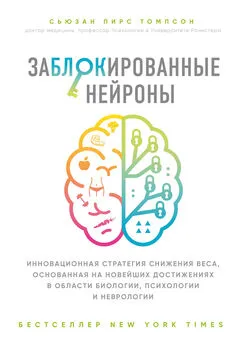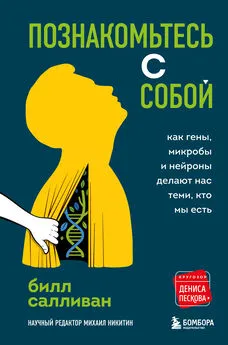Сьюзан Томпсон - Заблокированные нейроны
- Название:Заблокированные нейроны
- Автор:
- Жанр:
- Издательство:Литагент 5 редакция «БОМБОРА»
- Год:2019
- Город:Москва
- ISBN:978-5-04-091448-7
- Рейтинг:
- Избранное:Добавить в избранное
-
Отзывы:
-
Ваша оценка:
Сьюзан Томпсон - Заблокированные нейроны краткое содержание
В своей книге доктор медицины Сьюзан Пирс Томпсон делится ошеломляюще простым решением проблемы похудения. Дело в том, что наш собственный мозг мешает сделать это.
«Заблокированные нейроны» – это простой подход, в его основе лежат четыре Разумные Границы – четкие недвусмысленные черты, через которые нельзя переступать.
Сьюзан и участники ее программы делятся своими историями, из которых становится ясно, почему традиционные диеты и системы тренировок терпят поражение. Вы узнаете о том, какую роль на вашей дороге к похудению играет Восприимчивость, откуда появляются желания, с которыми невозможно бороться, как перенастроить мозг, чтобы они исчезли, – и о многом другом. Сьюзан предлагает план питания, который подойдет кому угодно, не важно, веган ли вы, сидите на безглютеновой или палеодиете или придерживаетесь любых иных ограничений.
«Заблокированные нейроны» выводят нас из порочного круга ожирения и представляют собой радикальный план стабильной потери веса. Это не что иное, как «читкод» в игре, где не обойтись без «читкодов».
Заблокированные нейроны - читать онлайн бесплатно ознакомительный отрывок
Интервал:
Закладка:
6
Bloom, D. E., Cafiero, E. T., Jané-Llopis, E., Abrahams-Gessel, S., Bloom, L. R., Fathima…. Weinstein, C. (2011). The Global Economic Burden of Non-communicable Diseases. Geneva: World Economic Forum, 5. Retrieved from http://www3.weforum.org/docs/WEF_Harvard_HE_GlobalEconomicBurdenNonCommunicableDiseases_2011.pdf
7
Bloom, D.E., Cafiero, E.T., Jané-Llopis, E., Abrahams-Gessel, S., Bloom, L.R., Fathima…. Weinstein, C. (2011). The Global Economic Burden of Non-communicable Diseases. Geneva: World Economic Forum, 6. Retrieved from http://www3.weforum.org/docs/WEF_Harvard_HE_GlobalEconomicBurdenNonCommunicableDiseases_2011.pdf
8
Fildes, A., Charlton, J., Rudisill, C., Littlejohns, P., Prevost, A., & Gulliford, M. (2015). Probability of an obese person attaining normal body weight: Cohort study using electronic health records. American Journal of Public Health, 105 (9), e54-e59. doi: 10.2105/AJPH.2015.302773
9
Marketdata Enterprises Inc. (2011, May 5). Diet Market Worth $60.9 Billion in U. S. Last Year, But Growth Is Flat, Due to the Recession. [Press Release]. Retrieved from http://www.marketdataenterprises.com/wp-content/uploads/2014/01/DietMarket2011PR.pdf
10
Rand, C. S, & Macgregor, A. M. (1991). Successful weight loss following obesity surgery and the perceived liability of morbid obesity. International Journal of Obesity , 15(9), 577.
11
Casey, B. J., Somerville, L. H., Gotlib, I. H., Ayduk, O., Franklin, N. T., Askren, M. K…. Shoda, Y. (2011). (2012). Behavioral and neural correlates of delay of gratification 40 years later: Proceedings of the National Academy of Sciences of the United States of America, 108 (36), 14998-15003. doi:10.1073/pnas.1108561108
12
Tierney, J. (2011, August 17). Do You Suffer From Decision Fatigue? The New York Times Magazine . Retrieved from http://www.nytimes.com/2011/08/21/magazine/do-you-suffer-from-decision-fatigue.html?_r=0
13
Baumeister, R. F., Bratslavsky, E., Muraven, M., & Tice, D. M. (1998). Ego depletion: Is the active self a limited resource? Journal of Personality and Social Psychology, 74 (5), 1252-1265. doi: 10.1037/0022-3514.74.5.1252
14
Vohs, K. D., Baumeister, R. F., Schmeichel, B. J., Twenge, J. M., Nelson, N. M., & Tice, D. M. (2008). Making choices impairs subsequent self-control: A limited-resource account of decision making, self-regulation, and active initiative. Journal of Personality and Social Psychology, 94 (5), 883-898. doi: 10.1037/0022-3514.94.5.883
15
Danziger, S., Levav, J., Avnaim-Pesso, L., & Kahneman, D. (2011). Extraneous factors in judicial decisions. Proceedings of the National Academy of Sciences of the United States of America, 108 (17), 6889-6892. doi: 10.1073/pnas.1018033108
16
Gailliot, M. T., Baumeister, R. F., DeWall, C. N., Maner, J. K., Plant, E. A., Tice, D. M…. Schmeichel, B. J. (2007). Self-control relies on glucose as a limited energy source: Willpower is more than a metaphor. Journal of Personality and Social Psychology, 92 (2), 325-336. doi: 10.1037/0022-3514.92.2.325
17
Hofmann, W., Baumeister, R. F., Förster, G., & Vohs, K. D. (2012; 2011). Everyday temptations: An experience sampling study of desire, conflict, and self-control. Journal of Personality and Social Psychology, 102 (6), 1318. doi: 10.1037/a0026545
18
Baumeister, R. F. (2014). Self-regulation, ego depletion, and inhibition. Neuropsychologia, 65 , 313-319. doi: 10.1016/j.neuropsychologia.2014.08.0
19
Gailliot, M. T., & Baumeister, R. F. (2007). The physiology of willpower: Linking blood glucose to self-control. Personality and Social Psychology Review, 11 (4), 303-327. doi: 10.1177/1088868307303030
20
McCullough, M. E., & Willoughby, B. L. B. (2009). Religion, self-regulation, and self-control: Associations, explanations and implications. Psychological Bulletin, 135 (1), 69-93. doi: 10.1037/a0014213
21
Luders, E., Toga, A. W., Lepore, N., & Gaser, C. (2009). The underlying anatomical correlates of long-term meditation: Larger hippocampal and frontal volumes of gray matter. Neuroimage, 45 (3), 672-678. doi: 10.1016/j.neuroimage.2008.12.061
22
McKellar, J., Stewart, E., & Humphreys, K. (2003). Alcoholics anonymous involvement and positive alcohol-related outcomes: Cause, consequence, or just a correlate? A prospective 2-year study of 2,319 alcohol-dependent men. Journal of Consulting and Clinical Psychology, 71 (2), 302-308. doi: 10.1037/0022-006X.71.2.302
23
Greer, S., Goldstein, A., & Walker, M. (2013). The impact of sleep deprivation on food desire in the human brain. Nature Communications , 4, 2259 doi: 10.1038/ncomms3259
24
DeSteno, D., Li, Y., Dickens, L., & Lerner, J. S. (2014). Gratitude: A tool for reducing economic impatience. Psychological Science, 25 (6), 1262-1267. doi: 10.1177/0956797614529979
25
Wansink, B., & Sobal, J. (2007). Mindless eating: The 200 daily food decisions we overlook. Environment and Behavior, 39 (1), 106-123. doi: 10.1177/0013916506295573
26
Dulloo, A. G., & Jacquet, J. (1998). Adaptive reduction in basal metabolic rate in response to food deprivation in humans: A role for feedback signals from fat stores. The American Journal of Clinical Nutrition, 68 (3), 599.
27
Speakman, J. R., & Westerterp, K. R. (2013). A mathematical model of weight loss under total starvation: Evidence against the thrifty-gene hypothesis. Disease Models & Mechanisms, 6 (1), 236-251. doi: 10.1242/dmm.010009
28
Rosenkilde, M., Auerbach, P., Reichkendler, M. H., Ploug, T., Stallknecht, B. M., & Sjödin, A. (2012). Body fat loss and compensatory mechanisms in response to different doses of aerobic exercise – a randomized controlled trial in overweight sedentary males. American Journal of Physiology: Regulatory, Integrative and Comparative Physiology, 303 (6), 571-579. doi: 10.1152/ajpregu.00141.2012
29
An fMRI shows differences between lean and obese after eating. Puzziferri, N., Zigman, J. M., Thomas, B. P., Mihalakos, P., Gallagher, R., Lutter, M…. Tamminga, C. A. (2016). Brain imaging demonstrates a reduced neural impact of eating in obesity. Obesity , 24(4), 829-836. doi: 10.1002/oby.21424
30
Satter, E. M. (2005), Your Child’s Weight: Helping Without Harming , Madison, WI: Kelsey Press.
31
Wansink, B., Painter, J., & North, J. (2005). Bottomless bowls: Why visual cues of portion size may influence intake. Obesity Research , 13(1), 93-100. doi:10.1038/oby.2005.12
32
Lisle, D. J. & Goldhamer, A. (2003) The Pleasure Trap . Summertown, TN: Healthy Living Publications.
33
Malaisse, W. J., Vanonderbergen, A., Louchami, K., Jijakli, H., & Malaisse-Lagae, F. (1998). Effects of artificial sweeteners on insulin release and cationic fluxes in rat pancreatic islets. Cellular Signalling, 10 (10), 727-733. doi: 10.1016/S0898-6568(98)00017-5
34
Malaisse, W. J., Vanonderbergen, A., Louchami, K., Jijakli, H., & Malaisse-Lagae, F. (2011). Intake of high-intensity sweeteners alters the ability of sweet taste to signal caloric consequences: Implications for the learned control of energy and body weight regulation. The Quarterly Journal of Experimental Psychology, 64 (7), 1430-1441. doi: 10.1080/17470218.2011.552729
35
Ingalls, A. M., Dickie, M. M., & Snell, G. D. (1996). Obese, a new mutation in the house mouse. Obesity Research, 4 (1), 101-101. doi: 10.1002/j.1550-8528.1996.tb00519.x
36
Zhang, Y., Proenca, R., Maffei, M., Barone, M., Leopold, L., & Friedman, J. M. (December 1994). Positional cloning of the mouse obese gene and its human homologue. Nature, 372 (6505), 425-432. doi: 10.1038/372425a0
37
Stavro, B. (1995, September 5). With fat-loss drug, Amgen takes on a weighty challenge: Pharmaceuticals: Biotech firm faces much risk and expense in getting the medication from the laboratory to the marketplace. Los Angeles Times . Retrieved from http://articles.latimes.com/1995-09-05/business/fi-42478_1_fat-drug
38
Münzberg, H., & Myers, M. G. (2005). Molecular and anatomical determinants of central leptin resistance. Nature Neuroscience, 8 (5), 566-570. doi: 10.1038/nn1454
39
Lustig, R. H. (2006). Childhood obesity: Behavioral aberration or biochemical drive? Reinterpreting the first law of thermodynamics. Nature Clinical Practice Endocrinology & Metabolism, 2 (8), 447-458. doi: 10.1038/ncpendmet0220
40
Pinhas-Hamiel, O., Lerner-Geva, L., Copperman, N., & Jacobson, M (2007). Lipid and insulin levels in obese children: Changes with age and puberty. Obesity, 15 , 2825-2831. doi: 10.1038/oby.2007.335
41
Grill, H., Schwartz, M., Kaplan, J., Foxhall, J., Breininger, J., & Baskin, D. (2002). Evidence that the caudal brainstem is a target for the inhibitory effect of leptin on food intake. Endocrinology, 143 (1), 239-246. doi: 10.1210/en.143.1.239
42
Marshall, R. O., & Kooi, E. R. (1957). Enzymatic conversion of D-glucose to D-fructose. Science, 125 (3249), 648-649. doi: 10.1126/science.125.3249.648
43
Nguyen, P., Lin, S., & Heidenreich, P. (2016). A systematic comparison of sugar content in low-fat vs regular versions of food. Nutrition & Diabetes, 6 , e193.
44
Hanna, J. M., & Hornick, C. A. (1977). Use of coca leaf in southern Peru: Adaptation or addiction. Bulletin on Narcotics, 29 (1), 63.
45
Verebey, K., & Gold, M. S. (1988) From coca leaves to crack: The effects of dose and routes of administration in abuse liability. Psychiatric Annals, 18 , 513-520. doi: 10.3928/0048-5713-19880901-06
46
Kenny, P. J., & Johnson, P. M. (2010). Dopamine D 2receptors in addiction-like reward dysfunction and compulsive eating in obese rats. Nature Neuroscience, 13 (5), 635-641. doi: 10.1038/nn.2519
47
Lenoir, M., Serre, F., Cantin, L., & Ahmed, S. (2007). Intense sweetness surpasses cocaine reward. Plos One , 2(8), e698. doi:10.1371/journal.pone.0000698
48
Hyman, M. (2014) The Blood Sugar Solution 10-Day Detox Diet . New York: Little, Brown and Company, 29.
49
It should be noted that there is variability in the adaptation of rats to foot shocks. This may require that the subjects be grouped as sensitive or resistant to foot shocks. For example, see Chen, B. T., Yau, H-J, Hatch, C., Kusumoto-Yoshida, I., Cho, S. L., Hopf, F. W., & Bonci, A. (2013). Rescuing cocaine-induced prefrontal cortex hypoactivity prevents compulsive cocaine seeking. Nature , 496, 359. doi:10.1038/nature12024
Читать дальшеИнтервал:
Закладка:










